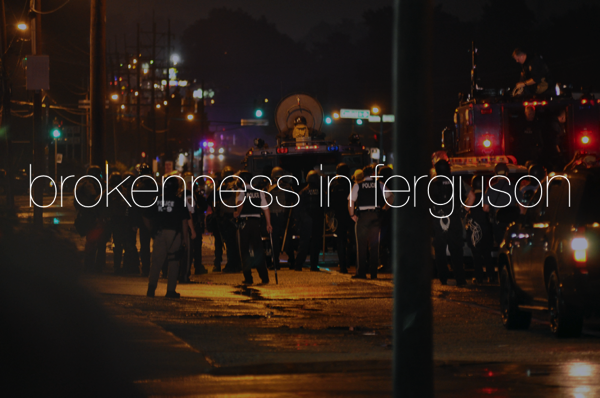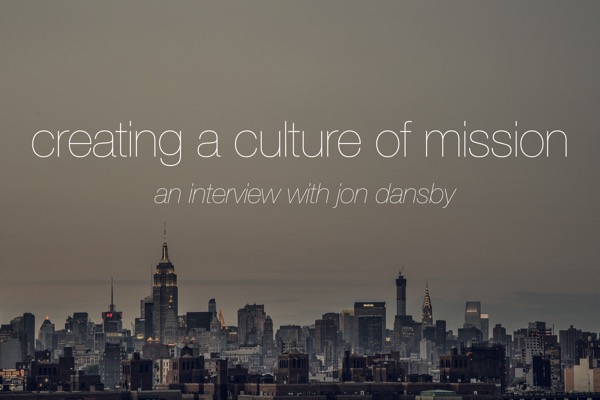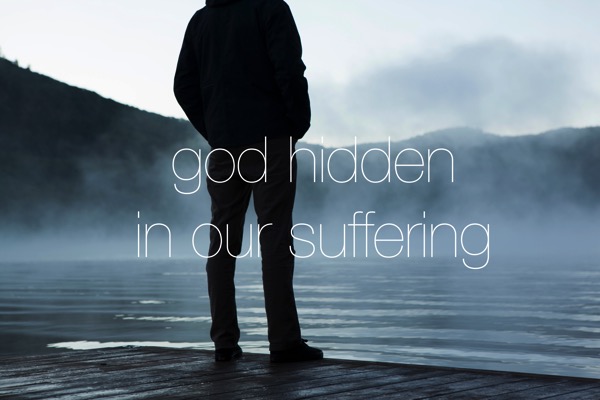Throughout the book of Judges, God keeps sending judges. It’s not a one-time occurrence, it happens over and over and over again. While Israel repeats this cycle of sin, slavery, and tragedy, God doesn’t step back and watch it grow progressively worse.
Instead of letting Israel destroy everything, God steps in. God intersects the cycle of sin with rescue. No matter how ugly things get for the Israelites, God interrupts this cycle with grace and forgiveness. And this is not a one-time thing, it’s repeated throughout the entire history of the nation of Israel.
Note: This post is an excerpt from the free eBook, Addiction: Leaving the Vomit Behind.
Psalm 106 describes this:
"Many times he delivered them,
but they were bent on rebellion
and they wasted away in their sin.
Yet he took note of their distress
when he heard their cry;
for their sake he remembered his covenant
and out of his great love he relented."
No matter how many times we repeatedly turn to the same sins over and over and over again, God says, “My grace is enough.”
And he doesn’t just say, “I forgive you,” once. He says it a second time and a third time and a hundredth time and a two-hundreth time. The depth of our sins do not dictate the mercy of God. The frequency of our sins don’t determine the grace that we receive.
God isn’t giving us more chances to “not screw it up,” but instead he provides the rescuer who stands in our place.
And that is not based on your behavior. It is not dependent on the sins you’ve committed, the pain that you’ve caused, or the tragedy that your choices have led to.
The Israelites keep committing the same sin over and over and over.
When we read this in the book of judges, I can’t help but think, “These guys are idiots.” And then Irealize I do the same thing.
We do the same things over and over again; we return to the same sins time and time and time again, yet God remembers his covenant. He says, “I love you the same.”
Guilt & Shame
As we talk about these types of struggles, we likely also will deal with feelings of great guilt and shame. Guilt says, “I’m sorry. I did something wrong.” Guilt uses judicial language; it says, “Here’s the law and here’s what I did. These don’t match up.”
And so we feel guilty. We feel guilty because when talking about our addiction, we understand that God said not to and we did it anyways. And we did it not only once, but we did it repeatedly. We feel guilt because we know that the slavery we face is a result of our own sins. We feel guilt because we see the consequences that have come from our own decisions and how it has affected others.
And guilt weighs us down.
But there’s not only guilt, there’s also shame. Where guilt says, “I’m sorry, I did something wrong,” shame says, “There’s something wrong with me.” While guilt yearns for justice, shame seeks hiding. Like Adam and Eve cover themselves in the Garden of Eden, shame runs from the spotlight because we are afraid people will see us for who we are.
Where guilt is judicial in its language, shame speaks to our identity.
Shame says:
I am an addict.
I am a shopaholic.
I am a workaholic.
I am a porn addict.
I am my job.
I am my relationships.
I am _______________________.
The Good News deals with both of these. The death and resurrection of Jesus deals with both guilt and shame. On the cross, you are declared not guilty. No matter what you’ve done or how many times you’ve done it, you are declared innocent.
Not guilty.
And the cross also covers shame. It speaks to your identity.
It says, “You are a new creation. The old is gone. The new has come.” You are not your addictions. You are not who you were.
In the book of Galatians, the Apostle Paul says it this way, “But when the time had fully come God sent his son born of a woman, born under law, to redeem those under the law.” Notice the language he’s using here. It begins very judicial, “That God sent his son born of a woman, born under law,” why? Because we had been guilty of breaking the law God sent his son, who was innocent, to redeem those who were guilty.
And as he continues, there’s a shift in his language, “That we might receive the full rights of sons.” He begins speaking to our identity, “Because you are sons. God sent the spirit of his son into our hearts, the spirit who calls out Abba, father. So you are no longer a slave, but a son, and since you are a son, God has made you also an heir.”
There’s actually a confession from 1581 that often gets used by churches even today:
O almighty God, merciful Father, I, a poor, miserable sinner, confess unto You all my sins and iniquities with which I have ever offended You and justly deserved Your temporal and eternal punishment. But I am heartily sorry for them, and sincerely repent of them, and I pray You, of Your boundless mercy, and for the sake of the holy, innocent, bitter suffering and death of Your beloved Son, Jesus Christ, to be gracious and merciful to me, a poor, sinful being. - The Lutheran Hymnal
“Poor, miserable sinner.” This is about shame.
“Justly deserved Your temporal and eternal punishment.” This is about guilt.
And how does Jesus respond to this confession? He declares, “Your sins are forgiven.”
Guilt removed.
Shame removed.
Your sins, forgiven.


 Our
Our 
 Core to the
Core to the 
 If you’ve been breathing the past two days, you’ve heard about the most recent decisions in Ferguson. The Internet has blown up with people tweeting and sharing their opinions, either infuriated by the decision or in support of Wilson’s testimony. People are hurting.
If you’ve been breathing the past two days, you’ve heard about the most recent decisions in Ferguson. The Internet has blown up with people tweeting and sharing their opinions, either infuriated by the decision or in support of Wilson’s testimony. People are hurting. In the book The Permanent Revolution,
In the book The Permanent Revolution,
 It has long be said that God’s Word is made up of two words. God’s first word of the law, which reminds us of our inability to save ourselves. And God’s word of the Gospel, which makes clear that are only hope is found in Christ alone.
It has long be said that God’s Word is made up of two words. God’s first word of the law, which reminds us of our inability to save ourselves. And God’s word of the Gospel, which makes clear that are only hope is found in Christ alone. There are a variety of ways that people talk about and describe preaching, especially when it comes to the purpose and design of a sermon. Some people argue for a strict exegetical style of preaching, others argue for a more topical approach to preaching.
There are a variety of ways that people talk about and describe preaching, especially when it comes to the purpose and design of a sermon. Some people argue for a strict exegetical style of preaching, others argue for a more topical approach to preaching. Paul writes in Timothy, "For the time is coming when people will not endure sound teaching, but having itching ears they will accumulate for themselves teachers to suit their own passions.” Another translation translates sound teaching as “healthy doctrine.”
Paul writes in Timothy, "For the time is coming when people will not endure sound teaching, but having itching ears they will accumulate for themselves teachers to suit their own passions.” Another translation translates sound teaching as “healthy doctrine.” I recently got the chance to talk to Jon Dansby, one of the pastors at
I recently got the chance to talk to Jon Dansby, one of the pastors at  It does take much living to realize that
It does take much living to realize that
 You are a missionary. As a Christian, part of your calling as a disciple is a mission assignment. You are given a mission to be a missionary in the places that God has placed you. Charles Spurgeon actually suggested, "Every Christian is either a missionary or an impostor."
You are a missionary. As a Christian, part of your calling as a disciple is a mission assignment. You are given a mission to be a missionary in the places that God has placed you. Charles Spurgeon actually suggested, "Every Christian is either a missionary or an impostor."